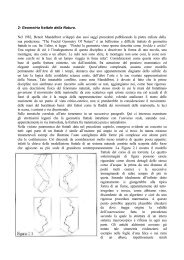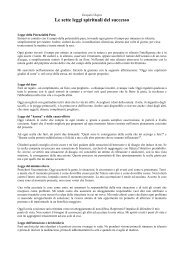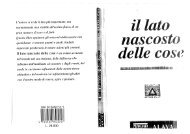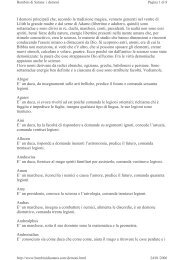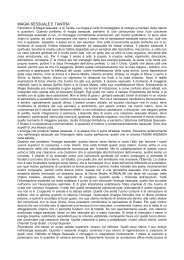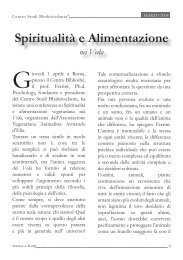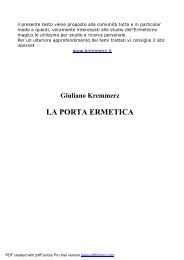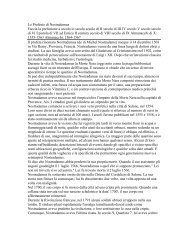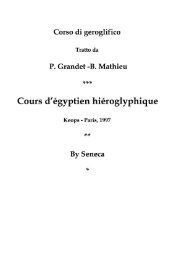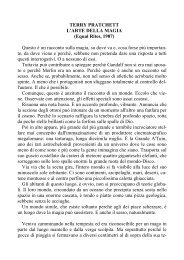32 ~ TALIBANmore Afghan Pashtuns had joined them in their march northwards. Themajority were incredibly young - between 14 and 24 years old - and manyhad never fought before although, like all Pashtuns, they knew how tohandle a weapon.Many had spent their lives in refugee camps in Baluchistan and theNWFP provinces of Pakistan, interspersed with stints at imbibing a Koraniceducation in the dozens of madrassas that had sprung up along the;border run by Afghan mullahs or Pakistan's Islamic fundamentalist par-:ties. Here they studied the Koran, the sayings of the Prophet Mohamnuand the basics of Islamic law as interpreted by their barely literatteachers. Neither teachers nor students had any formal grounding iimaths, science, history or geography. Many of these young warriors diinot even know the history of their own country or the story of the jilagainst the Soviets.These boys were a world apart from the Mujaheddin whom I hadto know during the 1980s - men who could recount their tribal and clilineages, remembered their abandoned farms and valleys with nostalgand recounted legends and stories from Afghan history. These boys wfrom a generation who had never seen their country at peace -Afghanistan not at war with invaders and itself. They had no memoriof their tribes, their elders, their neighbours nor the complex ethnicof peoples that often made up their villages and their homeland. Thboys were what the war had thrown up like the sea's surrender on thbeach of history.They had no memories of the past, no plans for the future while thepresent was everything. They were literally the orphans of the war, therootless and the restless, the jobless and the economically deprived withlittle self-knowledge. They admired war because it was the only occupytion they could possibly adapt to. Their simple belief in a messianic, pur-]itan Islam which had been drummed into them by simple village mull:was the only prop they could hold on to and which gave their lives sonumeaning. Untrained for anything, even the traditional occupationstheir forefathers such as fanning, herding or the making of handicrafts^they were what Karl Marx would have termed Afghanistan's lumpen proletariat.Moreover, they had willingly gathered under the all-male brotherhoodthat the Taliban leaders were set on creating, because they knew of nothingelse. Many in fact were orphans who had grown up without women -mothers, sisters or cousins. Others were madrassa students or had lived inthe strict confines of segregated refugee camp life, where the normal comingsand goings of female relatives were curtailed. Even by the norms ofconservative Pashtun tribal society, where villages or nomadic camps wereclose-knit communities and men still mixed with women to whom theyHERAT 1995: GOD'S INVINCIBLE SOLDIERS ~ 33were related, these boys had lived rough, tough lives. They had simplynever known the company of women.The mullahs who had taught them stressed that women were a temptation,an unnecessary distraction from being of service to Allah. So whenthe Taliban entered Kandahar and confined women to their homes bybarring them from working, going to school and even from shopping, themajority of these madrassa boys saw nothing unusual in such measures.They felt threatened by that half of the human race which they had neverknown and it was much easier to lock that half away, especially if it wasordained by the mullahs who invoked primitive Islamic injunctions,which had no basis in Islamic law. The subjugation of women becamethe mission of the true believer and a fundamental marker that differentiatedthe Taliban from the former Mujaheddin.This male brotherhood offered these youngsters not just a religiouscause to fight for, but a whole way of life to fully embrace and make theirexistence meaningful. Ironically, the Taliban were a direct throwback tothe military religious orders that arose in Christendom during the Crusadesto fight Islam — disciplined, motivated and ruthless in attaining theiraims. 1 In the first few months the sweeping victories of the Taliban createdan entire mythology of invincibility that only God's own soldierscould attain. In those heady early days, every victory only reinforced theperceived truth of their mission, that God was on their side and that theirinterpretation of Islam was the only interpretation.Reinforced by their new recruits, the Taliban moved north into Urozganand Zabul provinces which they captured without a shot being fired.The marauding Pashtun commanders, unwilling to test their own supporters'uncertain loyalty, surrendered by hoisting white flags and handingover their weapons in a mark of submission.In the south the Taliban moved against the forces of Ghaffar Akhunzadeh,whose clan had controlled Helmand province and its lucrative opiumpoppy fields for much of the 1980s. Here they met with fierce resistance,but by propping up smaller drug warlords against Akhunzadeh and bribingothers, the Taliban captured the province by January 1995. They continuedwestwards reaching Dilaram on the Kandahar-Herat highway andthe border of the three western provinces controlled by Ismael Khan. Atthe same time they moved north towards Kabul, easily slicing throughthe Pashtun belt where they met with more mass surrenders rather thanresistance.The chaotic and anarchic Pashtun south, where there was only a mobof petty commanders, had fallen to the Taliban easily, but now they cameup against the major warlords and the political and ethnic complexitiesthat gripped the rest of the country. In January 1995 all the oppositiongroups had joined hands to attack President Rabbani's government in
34 TALIBANKabul- Hikmetyar had allied with the Uzbek warlord General Rash:Dostum in the north and the Hazaras of central Afghanistan who heldportion of Kabul. Pakistan had helped broker the new alliance as Hikmetyarwas still Islamabad's clear favourite and at the beginning of the yearhe had received large quantities of Pakistani-supplied rockets to bombardthe capital. But even Islamabad was surprised by the rapid Talibanadvance. Although the Bhutto government fully backed the Taliban, theISI remained sceptical of their abilities, convinced that they would remaina useful but peripheral force in the south.Hikmetyar was clearly worried by this rival Pashtun force sweeping upfrom the south and tried to halt the Taliban while at the same timelaunching massive rocket attacks against Kabul, which killed hundreds ofcivilians and destroyed large tracts of the city. On 2 February 1995, theTaliban captured Wardak, just 35 miles south of Kabul and Hikmetyar'sbases around Kabul came under threat for the first time. The Talibancontinued to advance in lightning moves, capturing Maidan Shahr on 10February 1995, after heavy fighting which left 200 dead, and MohammedAgha the next day. Hikmetyar was now trapped by government forcesto the north and the Taliban to the south; morale among his troopsplummeted.On 14 February 1995 the Taliban captured Hikmetyar's headquartersat Charasyab, creating panic among his troops and forcing them to fleeeastwards towards Jalalabad. President Rabbani's troops, under his swordarmAhmad Shah Masud, withdrew into Kabul city. The Taliban thenopened all the roads, allowing food convoys to reach Kabul after themonths of blockade imposed by Hikmetyar. It was a popular step, raisingthe Taliban's prestige amongst the sceptical citizens of Kabul and fulfilleda key demand of the transport mafia backing the Taliban. Appeals for acease-fire by the UN Special Representative for Afghanistan, the Tuniseandiplomat Mehmoud Mestiri, were ignored as Masud and the Talibannow confronted each other.Masud had another problem even closer to home. Although Hikmetyarhad been forced to flee, Masud still faced the forces of the Shia Hazarasunder the Hizb-e-Wahadat party, which held the southern suburbs of the |capital. Masud tried to buy time and met twice with the Taliban com-]manders, Mullahs Rabbani, Borjan and Ghaus at Charasayab. These meetingswere the first time that the Taliban were to meet with their greatestrival, who was to persist in punishing them for the next four years. TheTaliban demanded Rabbani's resignation as President and Masud's surrender— hardly a negotiating stance that would win them support. The Talibanalso began negotiating with the Hazaras.The Taliban also met with Mestiri, the UN mediator, setting downthree conditions for their participation in any UN-sponsored peace pro-HERAT 1995: GOD'S INVINCIBLE SOLDIERS ~ 35cess. They demanded that their units form a 'neutral force' in Kabul, thatonly 'good Muslims' form an interim administration in Kabul and thatrepresentation be given to all 30 provinces in the country. The Taliban'sinsistence that only their forces dominate any new government in Kabul,obliged the Rabbani government and the UN to reject their demands.Masud decided to deal with his enemies one at a time. On 6 March1995, he launched a blitzkrieg against the Hazaras, sending tanks intoKabul's southern suburbs, smashing the Hazaras and driving them out ofKabul. In desperation the Hazaras cut a deal with the advancing Taliban,yielding their heavy weapons and positions to them. But in the ensuinghandover and melee, the Hazara leader Abdul Ali Mazari was killed whilein Taliban custody. The Hazaras subsequently claimed that Mazari waspushed out of a helicopter to his death by the Taliban, because he triedto seize a rifle while he was being taken to Kandahar as a prisoner.The death of Mazari, accidental or intentional, was to forever condemnthe Taliban in the eyes of the Afghan Shias and their main patron Iran.The Hazaras were never to forgive the Taliban for Mazari's death andtook their revenge two years later, when the Hazaras massacred thousandsof Taliban in the north. A bloody ethnic and sectarian divide, betweenPashtun and Hazara, Sunni and Shia bubbling just below the surface nowcame into the open.In the meantime Masud was not going to allow the Taliban to replacethe Hazaras in southern Kabul. On 11 March 1995 he launched anotherpunishing attack, pushing the Taliban out of the city after bloody streetfighting that left hundreds of Taliban dead. It was the first major battlethat the Taliban had fought and lost. Their weak military structure andpoor tactics ensured their defeat at the hands of Masud's more experiencedfighters.The Taliban had won over the unruly Pashtun south because theexhausted, war-weary population saw them as saviours and peacemakers,if not as a potential force to revive Pashtun power which had been humiliatedby the Tajiks and Uzbeks. Many surrenders had been facilitated bypure cash, bribing commanders to switch sides - a tactic that the Talibanwere to turn into a fine art form in later years and which was sustainedby the growth in their income from the drugs trade, the transport businessand external aid from Pakistan and Saudi Arabia. In their advance theyhad also captured massive quantities of small arms, tanks and even helicoptersenabling them to deploy more troops. In the areas under theirrule, they disarmed the population, enforced law and order, imposed strictSharia law and opened the roads to traffic which resulted in an immediatedrop in food prices. These measures were all extremely welcome to thelong-suffering population. The defeat in Kabul came as a major blow tothe Taliban's prestige, but not to their determination.
- Page 1 and 2: YALE NOTA BENE"The broader storyher
- Page 3 and 4: TalibanMilitant Islam,Oil and Funda
- Page 5 and 6: Vi ~ CONTENTSChapter 8A Vanished Ge
- Page 7 and 8: AFGHANISTAN•^ UZBEKISTAN J TAJIKI
- Page 9 and 10: 2 ~ TALIBANaccounts for some 40 per
- Page 11 and 12: "6 ~ TALIBANgas riches of landlocke
- Page 13 and 14: 10 ~ TALIBANgious mix that was to m
- Page 15 and 16: Part 1History of theTaliban Movemen
- Page 17 and 18: 18 ~ ISLAM OIL AND THE NEW GREAT GA
- Page 19 and 20: 22 ~ ISLAM OIL AND THE NEW GREAT GA
- Page 21 and 22: 26 ~ ISLAM OIL AND THE NEW GREAT GA
- Page 23: 30 ~ ISLAM OIL AND THE NEW GREAT GA
- Page 27 and 28: 38 ~ TALIBANrHERAT 1995: GOD'S INVI
- Page 29 and 30: 42 ~ TALIBANdo manage to take Kabul
- Page 31 and 32: J46 ~ TALIBANgreater weight to UN e
- Page 33 and 34: 50 ~ TALIBANas they hung from steel
- Page 35 and 36: 54 ~ TALIBANthey would help rearm t
- Page 37 and 38: 58 TALIBANGul Mohammed Pahlawan, Gh
- Page 39 and 40: 62 TALIBAN2,500 Taliban, who had re
- Page 41 and 42: 66 TALIBANshould throw all aid agen
- Page 43 and 44: 70 ~ TALIBANyears of battle and hel
- Page 45 and 46: 74 ~ TALIBANThousands of Hazaras we
- Page 47 and 48: 78 TALIBANhas become a plague,' sai
- Page 49 and 50: NEW STYLE FUNDAMENTALISM OF THE TAL
- Page 51 and 52: 86 TALIBANsity students - Hikmetyar
- Page 53 and 54: 90 TALIBANSharia was heavily influe
- Page 55 and 56: 94 TALIBANinflamed the debate in th
- Page 57 and 58: 98 TALIBANizing factor of Islam, it
- Page 59 and 60: 102 TALIBANadministrations made the
- Page 61 and 62: 106 ~ TAUBANfrom working, but it no
- Page 63 and 64: TALIBANUniversity, she held down a
- Page 65 and 66: 114 TALIBAN A VANISHED GENDER 115Ta
- Page 67 and 68: 118 TALIBANUS$1,300 - a small fortu
- Page 69 and 70: 122 TALIBANper cent of the total Pa
- Page 71 and 72: 126 TALIBANequipment, no electricit
- Page 73 and 74: 130 ~ TALIBANfight with the Mujahed
- Page 75 and 76:
134TALIBANAugust 1996 noted that Bi
- Page 77 and 78:
138 ~ TALIBANwho were using the Kho
- Page 79 and 80:
11DICTATORS AND OILBARONS: THE TALI
- Page 81 and 82:
146 TALIBAN DICTATORS AND OIL BARON
- Page 83 and 84:
150 — TALIBANgrowth of beards and
- Page 85 and 86:
154TALIBAN1998 when international o
- Page 87 and 88:
158 ~ TALIBANaround Afghanistan? Af
- Page 89 and 90:
162 TALIBAN ROMANCING THE TALIBAN 1
- Page 91 and 92:
166 TALIBAN ROMANCING THE TALIBAN 1
- Page 93 and 94:
ROMANCING THE TALIBAN 2: 1997-99 17
- Page 95 and 96:
174 — TALIBANnon-Russian pipeline
- Page 97 and 98:
178 — TALIBANROMANCING THE TALIBA
- Page 99 and 100:
182 ~ TALIBANApril 1999. 'The US ha
- Page 101 and 102:
186 ~ TALIBANters or the transport
- Page 103 and 104:
190 ~ TALIBANThis Wild West of free
- Page 105 and 106:
194 ~ TALIBANgovernance. Pakistani
- Page 107 and 108:
198 TALIBAN SHIA VERSUS SUNNI: IRAN
- Page 109 and 110:
202 TALIBAN SHIA VERSUS SUNNI: IRAN
- Page 111 and 112:
206 — TALIBANin Afghanistan - to
- Page 113 and 114:
210 — TALIBANand antagonism. The
- Page 115 and 116:
214 ~ TALIBANdrawn since 1996 - a P
- Page 117 and 118:
218 ~ TALIBANated and severely puni
- Page 119 and 120:
Origins of Members of the Taliban M
- Page 121 and 122:
APPENDIX 3 ~ 227Appendix 3A CHRONOL
- Page 123 and 124:
230 ~ TALIBANgraves near Shebarghan
- Page 125 and 126:
234 ~ TALIBAN8 June. US FBI places
- Page 127 and 128:
238 ~ TALIBAN1995 January16 MarchAp
- Page 129 and 130:
242 ~ TALIBANJune21 August10 Septem
- Page 131 and 132:
246 ~ TALIBANDupree, Nancy Hatch, A
- Page 133 and 134:
250 ~ NOTESChapter 31 Interview wit
- Page 135 and 136:
254 ~ NOTESmuddin, Religious Police
- Page 137 and 138:
258 NOTES13. The Japanese company M
- Page 139 and 140:
262 ~ NOTES28. Waxman, Sharon, 'A c
- Page 141 and 142:
Abbas, Mulla Mohammed 22,61,100Abda
- Page 143 and 144:
INDEX - 270Hazaras (continued)burea
- Page 145 and 146:
INDEX ~ 274nF»r\/FaliViar» milita
- Page 147:
INDEX ~ 278Talibans (continued)Sunn




